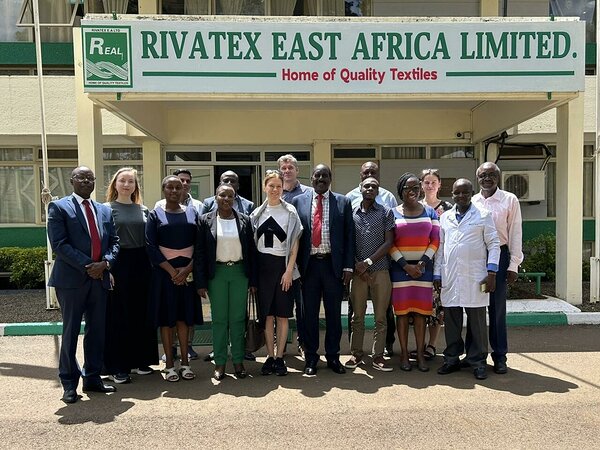Transferring Upmade know-how to Kenya
The project has been completed. Two in-depth reports were published as key outputs and are available below.
Problem Addressed
The textile industry is one of the most resource-intensive and polluting sectors globally. It consumes large amounts of raw materials, water, and energy, and generates significant amounts of waste—especially in the pre-consumer phase. This system not only harms the environment but also affects people’s livelihoods and economic resilience.Project Objective
The aim of the project “Transferring UPMADE Know-How to Kenya” was to apply Estonia’s research- and design-based UPMADE® model in Kenya’s largest textile factory, Rivatex, and align production with the principles of the circular economy and value-added reuse (upcycling). The project focused on:
- Increasing the resilience of the local textile industry and improving worker wellbeing
- Reducing the ecological footprint of textile production, especially pre-consumer waste
- Supporting job creation and skills development
- Enhancing competitiveness and innovation capacity in product development
- Contributing to climate goals by reducing greenhouse gas emissions
Stockholm Environment Institute Tallinn (Estonia)
Moi University (Kenya)
Project is financed by the Republic of Estonia
Overview of Activities
The project ran from September 2023 to March 2025 and involved the following key activities:
Outputs & Publications
As a result of the project, two core reports were published and are publicly available:
The project ran from September 2023 to March 2025 and involved the following key activities:
- Mapping Rivatex’s production processes and textile waste streams, using interviews, site observations, and data analysis
- Assessing leftover materials and waste, to evaluate their suitability for reuse and prepare the implementation of the UPMADE® system
- Providing strategic recommendations and practical support for integrating circular design and upcycling practices
- Organizing training sessions on circular production, upcycling techniques, and fabric handling for factory staff and designers
- Planning future cooperation to scale the model and assess its replication potential in other Kenyan textile factories
Outputs & Publications
As a result of the project, two core reports were published and are publicly available:
- Mapping textile waste and leftover materials – an overview of Rivatex’s current production setup, waste categories, and improvement opportunities.
- Leftover fabric analyses with design input – an applied assessment of leftover materials, design possibilities, and life cycle impacts of upcycled alternatives.





